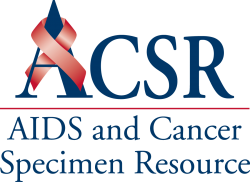Through this Notice of Special Interest (NOSI), NOT-CA-23-070 the National Cancer Institute (NCI) is a continuation of NOT-CA-20-022, “High” or “Medium” Priority AIDS Research on Non-AIDS-defining or AIDS-defining Cancers, which expired on January 8, 2023 , and is entitled, “Research on HIV-associated malignancies ” to reflect the most recent Office of AIDS Research priority guidelines for R21 and R01 mechanisms. NCI continues to encourage research that advances our understanding of the risks, development, progression, diagnosis, and treatment of malignancies observed in individuals with an underlying HIV infection and will continue to support research efforts that identify specific contributions of HIV infection on (a) the pathogenesis of co-infecting oncogenic pathogens, (b) the development of infectious cancer and associated disease sequelae of cancer, (c) investigations of modifiable factors/environmental exposures in diverse populations at risk for HIV-associated cancers, and (d) the clinical outcomes of such cancers in PWH. Ultimately, such efforts could guide development of targeted screening approaches and therapies optimized for PWH. Early in the epidemic, the most common tumors in PWH were those associated with severe immunosuppression, most notably Kaposi sarcoma (KS), non-Hodgkin lymphoma (NHL), and invasive cervical cancer. Widespread use of combination antiretroviral therapy (cART) and the aging of PWH, have somewhat caused a shift in the trends of the tumors associated with HIV infection to now include a wider spectrum of tumors, including anal cancer, several types of lung cancers, hepatocellular carcinoma, nasopharyngeal carcinoma, and Hodgkin lymphoma. Under the current Office of AIDS Research priority guidelines, research to reduce HIV-associated co-infections, comorbidities such as cancer, and other complications, is aligned with OAR priorities for HIV/AIDS research agenda. Therefore, through this NOSI, NCI intends to foster cancer-focused research in this area and to address recently identified research gaps included in the OAR priority guidelines.
First Available Due Date: September 07, 2023
Expiration Date: September 08, 2026
Read more: https://grants.nih.gov/grants/guide/notice-files/NOT-CA-23-070.html
